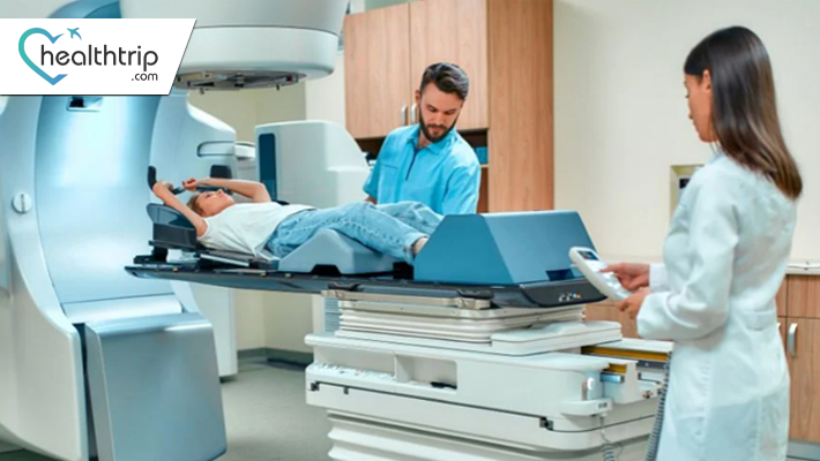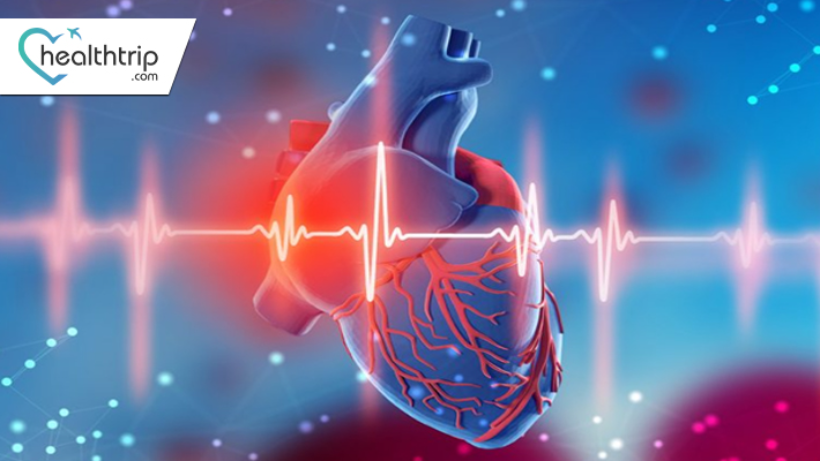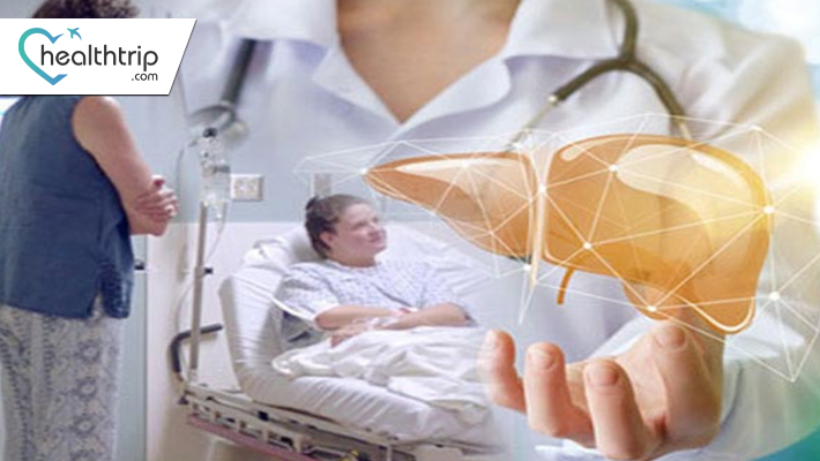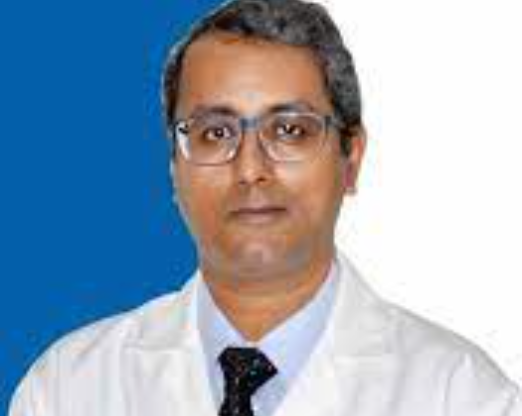Aakash Hospital
Hospital Plot, Rd Number 201, Dwarka Sector-3, New Delhi, Delhi 110075, India
Aakash Healthcare Super Speciality Hospital is a 230 bedded tertiary care facility, with 15 Dialysis, and 70 Critical care beds for treating the most complex cases in the National Capital Region (NCR) of Delhi, Dwarka.... read more
Send EnquiryAbout The Hospital
- Aakash Healthcare Super Speciality Hospital is a 230 bedded tertiary care facility, with 15 Dialysis, and 70 Critical care beds for treating the most complex cases in the National Capital Region (NCR) of Delhi, Dwarka. The hospital is equipped with state of the art infrastructure, latest technology, competent clinicians and compassionate staff.
- Aakash Healthcare Super Specialty Hospital is known for its leading care in the Orthopedic and Joint replacement surgery. To complement high-quality and comprehensive services, Aakash has several ‘Centers of Excellence’; namely Cardiology and Cardiac Surgery, Orthopedics & Joint Replacement, Mother& Child, General & Minimal Access Surgery, Ophthalmology & Refractive Error Surgery, Neurology & Neuro Surgery and Renal Sciences.
- The hospital also has a 24x7 ‘Trauma & Emergency Center’, blood bank, with state of art Neonatal and Pediatric ICU. The Super Specialty Hospital is being managed by highly qualified and trained experts from their respective fields and a unified team of healthcare experts ensure 24x7 comprehensive patient care. The Hospital has deployed high-end technologies and smart digital systems along with robust Hospital Information Systems to address complex medical needs and convenience of patients.
- Mr. J C Chaudhry is the chairman of Hospital and Dr. Aashish Chaudhry is Managing Director, who is also a renowned Orthopedic Surgeon in this region.
Treatments Offered
Top Doctors
Senior Consultant & Hod - Gastroenterology
CONSULTS AT EXPEREIENCE :20 years SURGERIES :
NA
Treatment Starting at $3,200
Free Text ConsultTreatment Starting at $3,200
20 years SURGERIES :
NA TREATMENT COST
Starting at $3,200
Senior Consultant - Pediatric Nephrologist
CONSULTS AT EXPEREIENCE :12 years SURGERIES :
NA
Treatment Price on request
Free Text ConsultTreatment Price on request
12 years SURGERIES :
NA TREATMENT COST
Treatment Price on request
Treatment Price on request
Free Text ConsultTreatment Price on request
18 years SURGERIES :
6000+ TREATMENT COST
Treatment Price on request
Senior Consultant & Director, Department Of Ophthalmology
CONSULTS AT EXPEREIENCE :17 years SURGERIES :
NA
Treatment Price on request
Free Text ConsultTreatment Price on request
17 years SURGERIES :
NA TREATMENT COST
Treatment Price on request
Sr. Consultant & Director - Deptt. Of Neuro And Spine Surgery
CONSULTS AT EXPEREIENCE :22 years SURGERIES :
NA
Treatment Starting at $7,000
Free Text ConsultTreatment Starting at $7,000
22 years SURGERIES :
NA TREATMENT COST
Starting at $7,000
Sr. Consultant & Head - Department Of Neuro Surgery
CONSULTS AT EXPEREIENCE :12 years SURGERIES :
NA
Treatment Price on request
Free Text ConsultTreatment Price on request
12 years SURGERIES :
NA TREATMENT COST
Treatment Price on request
Patient Testimonials
Nearby Guest House
Team & specialisation
VISION
- To become the most desired healthcare brand by providing compassionate, caring and world class healthcare service with the help of talented team of doctors, professionals and latest technology.
MISSION
- To achieve the highest patient satisfaction index by delivering patient centric best healthcare service among the local and extended community.
Infrastructure

Number Of Beds
230. ICU-70

Operation Theatres
8

No Of Surgeon
25
- 70 bedded medical and surgical Critical Care Unit.
- Ward Bed Options- Deluxe, Twin Sharing and Economy.
- 15 Bedded dialysis unit
- Ward bed options - Suite, Deluxe, Twin sharing & Economy
- Advanced Neonatal ICU
- LASIK - SMILE Suite
Blogs

Radiation Therapy for Liver Cancer: Targeting Tumors with Precision
Liver cancer is a relentless adversary, affecting millions globally. Amidst this health challenge, there emerges a beacon of hope—Radiation Therapy. This groundbreaking treatment is reshaping the landscape of liver cancer treatment, precisely honing in on tumors with unprecedented accuracy. In this exploration, we unravel the intricacies of Radiation Therapy for liver cancer, unveiling its mechanisms, benefits, and the profound impact it carries in the fight against this formidable disease.Who Needs Radiation Therapy for Liver Cancer Liver cancer can develop in individuals of any age, but it is more commonly diagnosed in older adults. Certain risk factors increase the likelihood of developing liver cancer, and individuals with these risk factors may benefit from radiation therapy:1. Chronic Liver Diseases: Long-term liver conditions, such as cirrhosis resulting from alcohol abuse or non-alcoholic fatty liver disease, elevate the risk of liver cancer. Individuals with chronic liver diseases may be candidates for radiation therapy, particularly if cancer develops.2. Viral Hepatitis: Chronic infection with hepatitis B or C significantly increases the risk of liver cancer. Regular monitoring and screenings, including imaging studies, may be recommended for individuals with viral hepatitis to detect liver cancer at an early stage when treatment options, including radiation therapy, may be more effective.3. Family History of Liver Cancer: A family history of liver cancer can indicate a genetic predisposition to the disease. Individuals with close relatives who have had liver cancer may be advised to undergo regular screenings, allowing for the early detection of any potential tumors.4. Previous Liver Cancer Treatment: Patients who have undergone previous treatments for liver cancer, such as surgery or chemotherapy, may be recommended for radiation therapy as part of a comprehensive treatment plan to target any remaining cancer cells.5. Advanced Liver Cancer: In some cases, radiation therapy may be used as a palliative treatment for advanced liver cancer. While it may not cure the disease at this stage, it can help manage symptoms and improve the quality of life.Why it is needed? Radiation therapy for liver cancer is performed to:1. Destroy Tumors: Delivering precise doses of radiation to the tumor aims to destroy cancer cells within the liver.2. Precision Targeting: Advanced techniques ensure accurate targeting, minimizing damage to healthy tissues.3. Comprehensive Treatment: Often part of a comprehensive treatment plan, it may be used alone or alongside surgery and chemotherapy.4. Palliative Care: In advanced cases, it can help manage symptoms, alleviate pain, and improve quality of life.5. Post-Treatment Eradication: Targets and eliminates residual cancer cells after other interventions.6. Risk Reduction: For high-risk individuals, it can be a preventive measure or early treatment.7. Minimize Side Effects: Precision targeting reduces damage to healthy organs, minimizing side effects and preserving overall health.Precision in Action – How Radiation Therapy Works:Radiation therapy for liver cancer involves the use of high doses of radiation to target and destroy cancer cells. Precision is crucial in this process to maximize the impact on cancer cells while minimizing damage to surrounding healthy tissues. Here's how precision is achieved in radiation therapy:1. Image-Guided Radiation Therapy (IGRT): IGRT uses advanced imaging techniques, such as CT scans or MRI, to precisely visualize the tumor in real-time during treatment. This allows for adjustments to be made to the position of the patient and the radiation beams, ensuring accurate targeting of the cancer.2. Stereotactic Body Radiation Therapy (SBRT): SBRT is a highly precise form of radiation therapy that delivers intense, focused doses of radiation to the tumor from multiple angles. This method is particularly effective for small tumors and offers increased accuracy in targeting.3. Customized Treatment Plans: The radiation oncology team creates individualized treatment plans based on the specific characteristics of the liver cancer. This includes determining the optimal dosage, the number of treatment sessions, and the angles from which radiation beams will be delivered.4. Organ-Sparing Techniques: Advanced technologies enable the precise sparing of nearby healthy organs, such as the kidneys or gastrointestinal tract, reducing the risk of collateral damage during treatment.Overall, precision in radiation therapy plays a pivotal role in enhancing the effectiveness of the treatment while minimizing potential side effects, contributing to better outcomes for individuals with liver cancer.Types of Radiation Therapy for Liver Cancer: There are different types of radiation therapy used for liver cancer treatment:1. External Beam Radiation Therapy (EBRT): This is the most common type of radiation therapy for liver cancer. It delivers radiation from outside the body using a machine, targeting the tumor with high precision.2. Stereotactic Body Radiation Therapy (SBRT): SBRT delivers high doses of radiation to the tumor from multiple angles with extreme accuracy. It is often used for small liver tumors.3. Radioembolization: This involves the injection of tiny radioactive beads directly into the blood vessels that supply the tumor. This type of radiation therapy is often used for advanced liver cancer or when surgery is not an option.What to Expect and what happens in Radiation TherapyBefore Starting Radiation Therapy:1. Thorough Evaluation: Before initiating radiation therapy for liver cancer, patients undergo a comprehensive evaluation. This includes a detailed medical history, physical examination, and various imaging studies (such as CT scans, MRIs, or PET scans) to precisely assess the size, location, and characteristics of the tumor.2. Simulation and Treatment Planning: A crucial step in the process involves simulation and treatment planning. During simulation, patients may undergo a CT scan in the same position they will be in during treatment. This helps create a detailed map of the treatment area, allowing for accurate targeting of the tumor while minimizing exposure to surrounding healthy tissues.3. Individualized Treatment Plan: Based on the evaluation and simulation, the radiation oncology team develops an individualized treatment plan. This plan outlines the number of treatment sessions, the dosage of radiation, and the angles from which the radiation beams will be delivered.During Radiation Therapy:Painless Treatment Sessions: The actual radiation therapy sessions are typically painless. Patients lie on a treatment table, and the radiation machine is adjusted to deliver precise beams to the targeted area. The radiation oncology team monitors the process from a control room.Minimal Sensation: Patients may not feel anything during the administration of radiation. The experience is comparable to having an X-ray. It's essential to remain still during the treatment to ensure accurate delivery of radiation to the tumor.Duration and Frequency: The number of sessions and the overall duration of treatment vary based on the type and stage of liver cancer. Some patients may undergo treatment daily for several weeks, while others may have a shorter, more intense course of treatment.Benefits of Precision Targeting in Radiation TherapyBenefits of Precision Targeting: Precision targeting in radiation therapy for liver cancer offers several benefits:1. Minimized Side Effects: Precise targeting allows for the delivery of high doses of radiation to the tumor while minimizing damage to healthy surrounding tissues. This helps reduce the risk of side effects.2. Improved Effectiveness: By accurately targeting the tumor, radiation therapy can be more effective in destroying cancer cells and shrinking tumors.3. Preservation of Healthy Tissues: Precision targeting helps spare healthy organs, preserving their function and minimizing long-term complications.4. Enhanced Treatment Planning: Advanced imaging technologies aid in precise treatment planning, ensuring that the radiation is delivered to the tumor with the highest accuracy.Potential Side Effects:1. Fatigue: Fatigue is a common side effect of radiation therapy. It may gradually accumulate over the course of treatment. Adequate rest, proper nutrition, and gentle exercise can help manage fatigue.2. Nausea: Some patients may experience nausea, particularly if the liver is near the stomach. Anti-nausea medications can be prescribed to alleviate this side effect.3. Skin Changes: The skin in the treated area may become irritated, red, or more sensitive. It's important to follow the skincare recommendations provided by the healthcare team and avoid exposing the treated area to direct sunlight.4. Other Side Effects: Depending on the location and extent of the treatment, patients may experience other side effects such as loss of appetite or changes in bowel habits. These effects are closely monitored, and supportive care measures are implemented to manage them.Post-Treatment Follow-Up:After completing radiation therapy, patients will have follow-up appointments to assess treatment effectiveness and monitor for any lingering side effects. Imaging studies may be repeated to evaluate the response of the tumor to the treatment. The healthcare team will provide guidance on post-treatment care, including any necessary lifestyle adjustments or ongoing supportive measures.It's crucial for patients to communicate openly with their healthcare team about any symptoms or concerns during and after radiation therapy, as timely intervention can help manage side effects and ensure the best possible outcome.In summary, precision-targeted radiation therapy emerges as a transformative force in liver cancer treatment. The marriage of technological precision and medical expertise not only offers hope to patients but represents a paradigm shift in oncology. As we navigate this frontier, the commitment to refining these techniques ensures a future where the battle against liver cancer is fought with unprecedented accuracy and compassion, promising brighter outcomes and a renewed sense of optimism for those facing this challenging diagnosis.

Top Cardiologists for Peripheral Artery Disease Treatment in India
Peripheral Artery Disease (PAD) is a prevalent vascular condition that affects millions of people worldwide, including many in India. This condition occurs when the blood vessels outside of the heart, primarily the arteries in the limbs, become narrow or blocked due to the buildup of plaque. As a result, individuals with PAD often experience symptoms such as leg pain, cramping, and numbness, which can significantly impact their quality of life.1. Dr. Amit Kumar ChaurasiaInterventional CardiologistConsults at : Artemis HospitalHe completed his MBBS from Pondicherry University in 2004, followed by MD in Medicine from Aiims in 2008 and DM in Cardiology from Shree Chitra Tirunal Instt. for Medical Sciences and Technology in 2011.He has also performed Transcatheter Pulmonary Valve Replacement (TPVR) in the smallest conduit in India and specializes in Transcatheter mitral Valve Replacements (TMVR).He has more than 50 left atrial appendage closures to his credit and has been involved in training doctors in these procedures in India and abroad.Dr. Chaurasia is an expert in complex coronary interventions such as Left main intervention, chronic total occlusion (CTO), and other complex procedures.He has performed over 10,000 cardiac procedures, including interventions for ASD, VSD, PDA, pulmonary AV fistula device closures.He has a special interest in carotid and aortoiliac interventions, including treatment for aortic aneurysms and dissections (TEVAR and EVAR).His expertise also extends to advanced catheter-based treatment of hypertension (Renal artery denervation).Clinical Expertise:Transcatheter Aortic Valve Implantation (TAVI)Transcatheter Pulmonary Valve Implantation (TPVR)Mitra ClipTranscatheter Tricuspid Valve TherapyTEVAR/EVAR Complex Coronary InterventionsRotational AtherectomyTransradial InterventionsPeripheral Interventions including Carotid and RenalDevice Closure of Congenital Heart Defects (ASD, VSD, and PDA)Pacemakers, ICD’s and CardiacResynchronisation Therapy ImplantsBalloon Valvuloplasty Permanent Pacemaker Implantation2.Dr. Ankur PhatarpekarInterventional CardiologistConsults at : Wockhardt Hospitals, Mira Road, MumbaiDr. Ankur Ulhas Phatarpekar is a Consultant Interventional Cardiologist with over 20 years of experience.He completed his MD and DM Cardiology from the prestigious Seth G. S. Medical College and King Edward Memorial Hospital.Dr. Phatarpekar worked as an Assistant Professor at the same institution.Dr. Phatarpekar has conducted several interventional trials and has over 30 international publications to his name.He is associated with several hospitals including Breach Candy, Wockhartds Hospital, Global, Fortis Raheja, and Symbiosis speciality clinic.Dr. Phatarpekar has extensive experience in diagnostic procedures like 2D echo cardiography, pediatric and fetal echocardiography, dobutamine stress echo, and interventional cardiac procedures like Angiography and angioplasty, Cardiac Catheterization, Pacemaker insertion, Balloon Mitral valvotomy, Pediatric interventions.Some of the treatments he provides include Cardiac Catheterization, Cardioversion, Coronary Angiogram, Treadmill Test - TMT, Chest Pain Treatment, Cardiography, Cardiac Invasive Procedures, Peripheral Vascular Disease, Peripheral Interventions, ECHO Cardiography, Second Opinion before or after angiography, angioplasty & bypass, Pulmonary Function Test (PFT), and Ultrasound/Ultrasonography.3.Dr. Stalin RoyConsultant Interventional CardiologistConsults at : MIOT INTERNATIONAL2016 - till date: Consultant Interventional Cardiologist Meditrina hospital, Kollam, Kerala, IndiaVisiting Consultant Interventional Cardiologist • ESI super-specialty hospital, Kollam, Kerala, India2012-2013: Senior Registrar - Pulmonology, Lung transplant and critical care unit - Gleneagles Global hospital Chennai, IndiaEducation DM Cardiology [2013-2016] - Madras Medical College (MMC), Chennai, IndiaIs it worth spending on Chronic Total Occlusion Management: Algorithm for the Value for Money: Prathap Kumar N, Manu Rajendran, Stalin Roy J; Chapter 122, Cardiology Update 2019: An official publication of the Cardiological Society of IndiaCLINICAL SKILLS/AREAS OF EXPERTISE:Complex coronary interventionsLeft main bifurcation PCICalcific lesions ~ rotational atherectomy, IVLIntracoronary imaging — IVUS and OCTCoronary physiology — FFR, RFRPrimary PCI in high risk sub-setsPacemakers, ICD and CRT-DPeripheral interventionsCritical care cardiology/pulmonologyClinical trial design and analysis4.Dr. Ashish AgarwalInterventional CardiologistConsults at : Aakash HospitalDr. Ashish Agarwal is an Interventional Cardiologist with extensive experience in the field.He has received all his degrees by All India Merit from premier Government Institutions.Dr. Agarwal has 21 national and international publications.He specializes in performing pediatric and adult echocardiography.His educational qualifications include M.B.B.S, MD, and DM (Cardiology).He is skilled in various cardiac catheterization procedures, including angiography, angioplasty, renal and peripheral stenting, coil embolization, percutaneous valve dilatation, and device closure of holes in the heart.He is currently working as Senior Consultant and Head of the department at Aakash Superspeciality Hospital, Dwarka, Sector 3, New Delhi.Dr. Agarwal has gained experience through various positions, including MD Resident and Senior Resident at Gandhi Medical College, DM Resident at Sri Jayadeva Institute of Cardiovascular Sciences and Research, Consultant Interventional Cardiologist at Shri Ram Cardiac Center, and Consultant Interventional Cardiologist and Head of the department at Grecian Superspeciality hospital.How can we help with the treatment?If you're on the lookout for treatment in India, Thailand, Singapore, Malaysia, UAE, and Turkey, let Healthtrip be your compass. We will serve as your guide throughout your medical treatment. We'll be by your side, in person, even before your medical journey commences. The following will be provided to you:Global Network: Connect with 35+ countries' top doctors. Partnered with 335+ leading hospitals.Comprehensive Care: Treatments from Neuro to Wellness. Post-treatment assistance and TeleconsultationsPatient Trust: Trusted by 44,000+ patients for all support.Tailored packages: Access top treatments like Angiograms.Real Experiences: Gain insights from genuine patient testimonials.24/7 Support: Continuous assistance and emergency help.Our success stories5.Dr. Rajdeep AgarwalSenior Consultant - Interventional CardiologistConsults at : S L Raheja Fortis Hospital, MahimDr. Rajdeep Agarwal is an esteemed Cardiologist located in Sion East, Mumbai, with an impressive 33 years of experience in the field.He is associated with S. L. Raheja Hospital, Mumbai, where he provides specialized cardiac care.Dr. Agarwal earned his MBBS degree from the University of Mumbai in 1985. He further pursued MD in General Medicine from the University of Mumbai in 1989, enhancing his medical expertise.Dr. Agarwal completed his DM in Cardiology from the University of Mumbai in 1991, solidifying his specialization in the field.Professional Affiliations: He is a member of prominent medical organizations, including Maharashtra Medical Council, Medical Council of India (MCI), and the Indian Medical Association (IMA).Dr. Agarwal offers a range of specialized cardiac services, including Echocardiography, Cardioversion, Carotid Artery Disease management, Temporary Pacemaker implantation, and CT Angiogram.With over three decades of experience, Dr. Rajdeep Agarwal is committed to providing high-quality cardiac care to his patients in Mumbai.Treatments:EchocardiographyCardioversionCarotid Artery DiseaseTemporary PacemakerPacemaker ImplantationRevascularizationDobutamine Stress TestPCI (Percutaneous Coronary Interventions)TAVI (Transcatheter Aortic Valve Implantation)Minimally Invasive Cardiac SurgeryAcute Aortic DissectionOpen Heart SurgeryHeart TransplantCongenital Heart Surgery

Liver Cirrhosis Treatment Cost in India
Liver cirrhosis is a serious medical condition that occurs when scar tissue replaces healthy liver tissue, leading to impaired liver function. It can result from various causes, including chronic alcoholism, viral hepatitis, and other liver diseases. Timely diagnosis and treatment are crucial for managing the condition effectively. In India, a diverse range of treatment options is available, catering to different stages and causes of cirrhosis. In this blog, we will explore the various treatment options and their associated costs.Treatment Options for Liver CirrhosisMedication and Lifestyle ChangesMedications: Depending on the underlying cause of cirrhosis, patients may be prescribed medications to manage symptoms, slow down disease progression, or address specific complications.Lifestyle modifications: Adopting a healthy lifestyle, including a balanced diet, regular exercise, and abstaining from alcohol and tobacco, can help manage cirrhosis.Dietary and Nutritional SupportNutritional therapy: Specialized diets and supplements may be recommended to support liver function and overall health.Endoscopic InterventionsVariceal band ligation: This procedure is used to treat bleeding from enlarged veins in the esophagus (esophageal varices) that can occur as a complication of cirrhosis.Sclerotherapy: It involves injecting a solution into the varices to induce scarring and stop bleeding.Transjugular Intrahepatic Portosystemic Shunt (TIPS)TIPS is a procedure used to create a channel within the liver that connects the portal vein to one of the hepatic veins, bypassing the liver. This helps alleviate high blood pressure in the portal vein, a common complication of cirrhosis.Liver TransplantationIn severe cases where cirrhosis has progressed significantly, a liver transplant may be the best treatment option. This involves replacing the damaged liver with a healthy liver from a deceased or living donor.Average Costthe cost of liver cirrhosis treatment in India is much lower than in developed countries such as the United States and the United Kingdom. For example, a liver transplant in India can cost anywhere from $15,000 to $25,000, while the same procedure in the United States can cost upwards of $250,000.Here is a breakdown of the approximate cost of some common liver cirrhosis treatments in India:Liver function tests1,000 - 2,000$12 - $24Imaging tests (ultrasound, CT scan, MRI)3,000 - 10,000$36 - $120Liver biopsy10,000 - 15,000$120 - $180Medications1,000 - 10,000 per month$12 - $120 per monthEndoscopic retrograde cholangiopancreatography (ERCP)20,000 - 30,000$240 - $360Transjugular intrahepatic portosystemic shunt (TIPS)50,000 - 100,000$600 - $1,200Liver transplant15,000 - 25,000$180 - $300ConclusionThe cost of treating liver cirrhosis in India varies depending on the severity of the condition, the chosen treatment approach, and the hospital or medical facility. It is essential for patients to consult with healthcare professionals to determine the most appropriate treatment plan and associated costs. Additionally, seeking medical attention early and adopting a healthy lifestyle can significantly improve the quality of life for individuals with cirrhosis. Always consult a healthcare professional for personalized advice and treatment options.

Prominent Bronchovascular Markings Treatment Options
Prominent Broncho vascular markings might sound like a complex medical term, but understanding what they are and how to address them is essential for maintaining your respiratory health. In this blog post, we will explore the definition of prominent Broncho vascular markings, their significance, and the various treatment options available to manage them effectively.Causes and Risk FactorsBefore diving into treatment options, it's important to grasp the underlying causes and risk factors associated with prominent Broncho vascular markings. These markings can be attributed to a variety of factors, including underlying medical conditions, lifestyle choices, and genetic predisposition. Identifying the root causes will help in developing a targeted treatment plan.Identifying Prominent Broncho vascular MarkingsRecognizing the presence of prominent Broncho vascular markings is crucial for seeking appropriate medical attention. Symptoms can vary, but often include coughing, shortness of breath, and chest discomfort. Diagnostic imaging techniques, such as chest X-rays and CT scans, play a key role in confirming their presence. If you experience any of these symptoms, consult with a healthcare professional for a thorough evaluation.Treatment OptionsTreatment for prominent Broncho vascular markings depends on their underlying cause and severity. Here are the main categories of treatment options:Conservative ManagementLifestyle Modifications: Making positive changes in your lifestyle, such as maintaining a healthy weight, staying hydrated, and avoiding environmental pollutants, can help alleviate symptoms associated with prominent Broncho vascular markings.Smoking Cessation: If you smoke, quitting is imperative. Smoking exacerbates respiratory conditions and can worsen Broncho vascular markings.Allergy Management: Identifying and managing allergies can reduce inflammation and respiratory symptoms.Medication-based ApproachesAnti-inflammatory Drugs: Corticosteroids may be prescribed to reduce inflammation in the airways, providing relief from symptoms like coughing and wheezing.Bronchodilators: These medications help relax the bronchial muscles, improving airflow and reducing breathlessness.Antihistamines: If allergies are a contributing factor, antihistamines can help manage symptoms like sneezing and nasal congestion.Surgical InterventionsIn severe cases, surgical interventions may be necessary:Thoracic Surgery: Surgeons may perform procedures to remove damaged or scarred tissue in the lungs or bronchial tubes.Endoscopic Procedures: Minimally invasive techniques, such as bronchoscopy, can be used to examine and treat the airways.Lifestyle Changes for Managing Prominent Broncho vascular MarkingsIn addition to medical treatments, certain lifestyle changes can complement your management plan:Diet and Nutrition: A well-balanced diet rich in antioxidants and anti-inflammatory foods can support lung health.Exercise and Physical Activity: Engaging in regular physical activity can improve lung function and overall well-being.Stress Reduction Techniques: Stress can exacerbate respiratory symptoms, so incorporating stress-reduction strategies like yoga or meditation may be beneficial.Preventative MeasuresPreventing prominent Broncho vascular markings involves:A. Avoiding Risk Factors: Steer clear of environmental irritants and factors that can worsen respiratory conditions.B. Regular Health Checkups: Routine checkups with your healthcare provider can help monitor your lung health and detect any changes early.Complications and When to Seek Medical AttentionIt's crucial to be aware of potential complications associated with untreated prominent Broncho vascular markings. Complications may include severe respiratory distress, infections, or even lung damage. If you experience worsening symptoms, such as severe chest pain or sudden shortness of breath, seek immediate medical attention.ConclusionIn conclusion, understanding and managing prominent Broncho vascular markings is essential for preserving your respiratory health. Early diagnosis and appropriate treatment, including lifestyle modifications and medical interventions, can lead to an improved quality of life. Remember, if you suspect you have prominent Broncho vascular markings or experience respiratory symptoms, consult with a healthcare professional for personalized guidance and care.

















